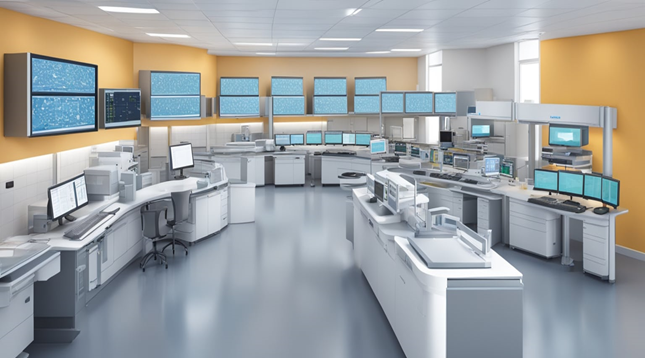
The Impact of Pathology Lab Reporting Software on Modern Healthcare: A Comprehensive Analysis
Pathology lab reporting software has revolutionized the way healthcare providers manage patient data. With the rise of modern healthcare, technology has become an indispensable tool in the healthcare industry. Pathology lab reporting software is one such technology that has transformed the way healthcare providers diagnose and treat patients.
The impact of pathology lab reporting software on modern healthcare cannot be overstated. This software has made it possible for healthcare providers to access patient data in real-time, allowing for faster and more accurate diagnoses. It has also made it easier for healthcare providers to track patient progress and ensure that they receive the appropriate treatment. Additionally, pathology lab reporting software has made it possible for healthcare providers to share patient data securely, which has improved collaboration between healthcare providers and led to better patient outcomes.
Pathology lab reporting software has revolutionized the way healthcare providers manage diagnostic testing and patient care. By automating laboratory operations, this software has significantly reduced the risk of human error, thus enhancing diagnostic accuracy and patient safety.
The software ensures that test results are accurately recorded and communicated to physicians and other healthcare professionals. This eliminates the need for manual data entry and reduces the risk of transcription errors. Additionally, the software provides real-time alerts for critical values, ensuring that healthcare providers are immediately notified of any potential patient safety issues.
Pathology lab reporting software has also helped to optimize laboratory workflow and productivity. By automating routine tasks, the software frees up laboratory staff to focus on more complex tasks, such as analyzing test results and providing clinical insights.
The software also helps to streamline sample processing, reducing turnaround times and improving operational efficiency. This ensures that patients receive timely and accurate diagnoses, which is critical for effective treatment.
Effective communication and data management are critical components of modern healthcare delivery. Pathology lab reporting software helps to streamline communication and data transfer between laboratory staff, physicians, and other healthcare professionals.
Integrated communication tools allow healthcare providers to easily share test results and clinical insights, ensuring that patients receive timely and comprehensive care. The software also provides robust data management capabilities, allowing healthcare providers to easily access and analyze patient data.
In summary, pathology lab reporting software has had a significant impact on modern healthcare delivery. By improving diagnostic accuracy, optimizing laboratory workflow and productivity, and streamlining communication and data management, this software has helped to enhance patient care and improve overall healthcare outcomes.
The integration of AI and machine learning algorithms into pathology lab reporting software has revolutionized the healthcare industry. These technologies have enabled software to analyze vast amounts of data at a speed and accuracy that is unmatched by humans. With the help of AI and machine learning, pathology lab reporting software can identify patterns and predict outcomes, leading to faster and more accurate diagnoses.
As the healthcare industry undergoes digital transformation, regulatory requirements for data security and compliance have become increasingly stringent. Pathology lab reporting software must adhere to these regulations to ensure the privacy and security of patient data. To achieve this, software developers have implemented robust security protocols such as encryption and two-factor authentication.
Pathology labs have unique needs and require software that can be customized to meet those needs. Pathology lab reporting software offers customization options to ensure that the software meets the specific requirements of each lab. Additionally, scalability is essential for labs that may need to expand or downsize their operations. Pathology lab reporting software can be scaled up or down to accommodate the changing needs of the lab.
In conclusion, the integration of AI and machine learning, adherence to regulatory requirements for data security and compliance, and customization and scalability options make pathology lab reporting software an essential tool for modern healthcare. As technology continues to advance, the future outlook for pathology lab reporting software is bright, with even more innovative features on the horizon.